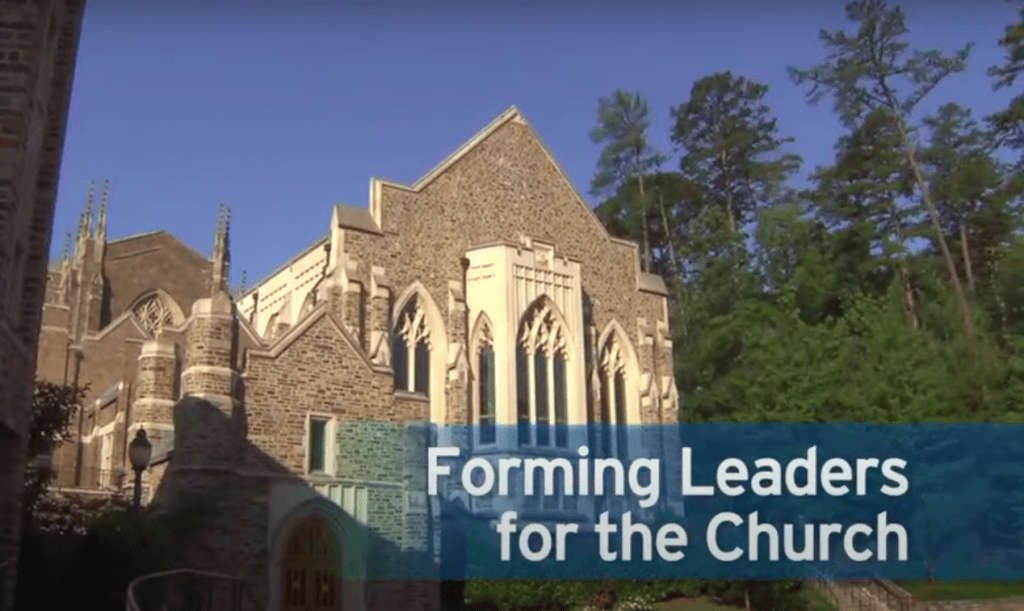A Defense Of Duke Divinity

Last week I published a harsh criticism of Duke Divinity School. A current student, Ben Davison (a graduate of Hope College, and a second-year M.Div student at Duke), has written in defense of his school. Here is what he has to say:
For the past two years, I have gathered every week with four other Duke Divinity students to read Scripture and pray. It wasn’t until a few months ago that we realized that our group consisted of an Anglican, a Presbyterian, a Roman Catholic, a Lutheran, and a non-denominational student. It sounds like one of those bad jokes (a Catholic, a Lutheran, and an Anglican walk into a bar…), but it is actually more like a picture of the Kingdom.
My experience at Duke Divinity School (DDS) has not been perfect, but I have also not found it to be place where, as the former DDS student in Rod Dreher’s post claims, the “goal is to destroy evangelicals and anyone who stands in the way of the BLM/LGBTQIA religion”. As a more conservative student who attends an evangelical Presbyterian church, I have found the faculty to be incredibly orthodox and committed to raising up leaders for ministry in the Church. Consider the weekly topics for my Introduction to Theology course that all MDiv and MTS students must take:
The Nature and Task of Theology
God the Father
Creator and Creation, the World and Humankind
Sin, Evil, and the Fall
Jesus Christ, the Son of God: Christological Orthodoxy
Jesus Christ, the Son of God: Modern Christologies
Eschatology
The Holy Spirit and Grace
The Trinity
Soteriology
The Church
Worship, Sacraments, and Ministry
Prayer, Love, and Union with God
These topics do not suggest a radical agenda that diverges from traditional Christian orthodoxy, and I can assure you that an engagement with these topics through figures such as Gregory of Nazianzus, Augustine, Maximus the Confessor, and Karl Barth has been incredibly formative in structuring my theology. A theology class that understands prayer, love, and union with God to be the culmination and result of studying theology is surely preparing students for a life of leadership in the church. I have found that one of the strengths of DDS, which seems distinctive when compared with some other seminaries, is its commitment to the long tradition of catholic and orthodox (lowercase letters) faith throughout church history. The project that I am a part of at Duke does not understand post-1517 theology to be the bedrock of Christian faith, but takes seriously the deep well of the Christian tradition present since the inception of the church. It is this approach to theology that awakens ecumenical potential and makes it a joy to pray and study alongside my friends of different denominations and traditions.
My time here has not been perfect and I have been a part of strange conversations that seem tangential to my formation as a future minister. The most peculiar of which was being asked by my preceptor to alternate between male and female pronouns for God throughout a sermon I preached in order to be gender inclusive. I chose not to do this for pastoral and theological reasons, and after addressing it with my professor I was told that I made the right decision. I cite this example to show that some of the sentiments in the prior article are not fully unfounded, but also to paint a different narrative of grace, attentiveness, and understanding. In my time here at Duke, I found that these frustrating scenarios are more the exception than the norm, and that the majority of my energy, creativity, and passion is devoted to the joyful labor of learning to read Scripture and engage with the Christian tradition well. This is the more mundane and less sexy work that often goes unnoticed by outsiders looking in. To the question of which God is served at DDS, I can only respond that I have been pushed to encounter “the God who raised Jesus from the dead, having before raised Israel from Egypt” (Robert Jenson, Systematic Theology, 1:63).
I appreciate Ben Davison’s taking the time to write in.
Subscribe for as little as $5/mo to start commenting on Rod’s blog.